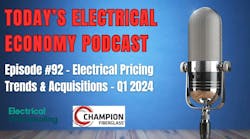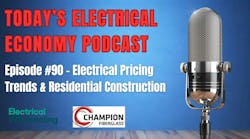Building permits increase 3.2 percent in August. Privately-owned housing units authorized by building permits in August were at a seasonally adjusted annual rate of 620,000, 3.2 percent above the revised July rate of 601,000 and 7.8 percent above the Aug. 2010 estimate of 575,000, according to the U.S. Census Bureau. Single-family authorizations in August were at a rate of 413,000, 2.5 percent above the revised July figure of 403,000.
Architectural Billings Index takes a surprising turn to higher ground. On the heels of a period of weakness in design activity, the Architecture Billings Index (ABI) took a sudden upturn in August, according to the American Institute of Architects (AIA), Washington, D.C.
The ABI reflects the approximate nine- to twelve-month lag time between architectural billings and construction spending. The AIA reported the August ABI score was 51.4 points, following a very weak score of 45.1 points in July. This score reflects an increase in demand for design services (any score above 50 points indicates an increase in billings). The new projects inquiry index was 56.9 points, up sharply from a reading of 53.7 points the previous month.
“Based on the poor economic conditions over the last several months, this turnaround in demand for design services is a surprise,” said AIA Chief Economist, Kermit Baker. “Many firms are still struggling and continue to report that clients are having difficulty getting financing for viable projects, but it’s possible we’ve reached the bottom of the down cycle.”
Conference Board employment indicator slumps in August. The Conference Board Employment Trends Index (ETI) decreased again in August to 100.8 points, down from July’s revised figure of 101 points. The August figure is up 4.1 percent from a year ago. Said Gad Levanon, the Conference Board’s associate director of macroeconomic research, “While the Employment Trends Index has been on a slightly declining trend in recent months, the decline in the index is still not as strong as it was in the months leading to previous recessions. We still expect the economy to moderately add jobs in the next several months, but not fast enough to lower the unemployment rate.”








